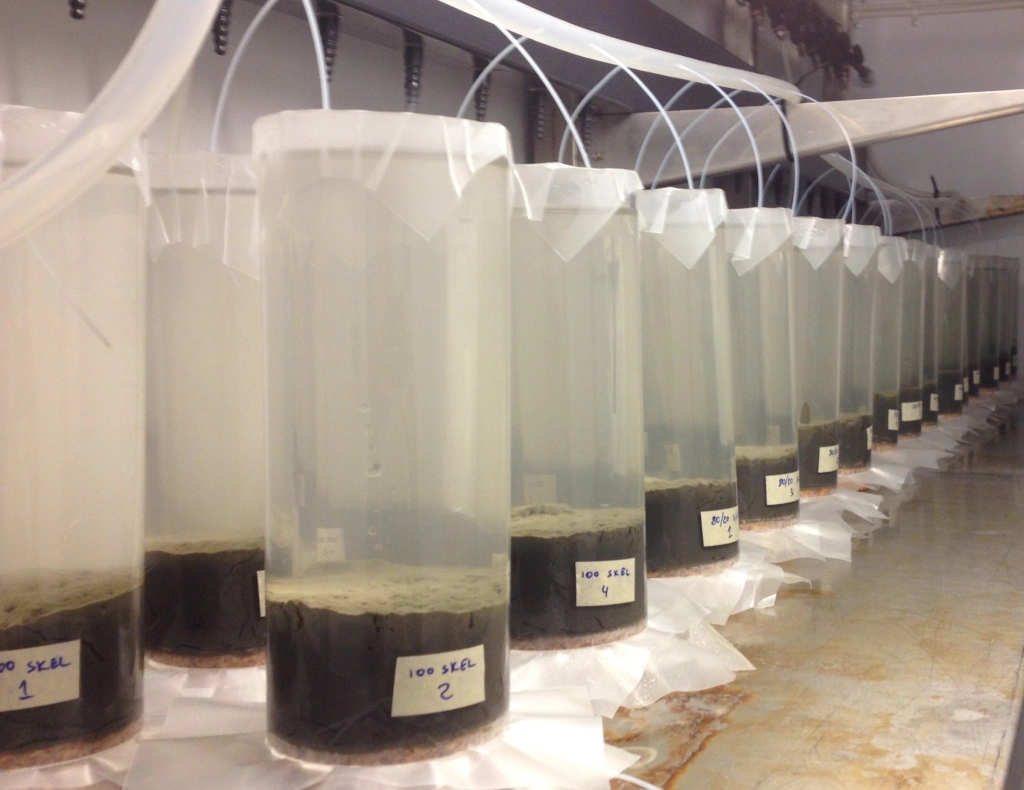A large majority of plankton species overwinter as resting stage in the sediment. The resting life stage is, however, often overlooked in climate change research, although emergence of planktonic organisms originating from resting stages from the sediment is a key driver for pelagic population dynamic and community composition.
Here we ask to what extent the recruitment of plankton resting stages is affected by proposed climate change. For this, we investigated phyto- and zooplankton recruitment from oxic sediments in the Baltic Sea in a controlled experiment under proposed temperature and light increase during the spring and summer.
We find that emergence of resting stage differs between seasons and the abiotic environment. Phytoplankton recruitment from resting stages were high in spring with significantly higher emergence rates at increased temperature and light levels for dinoflagellate and cyanobacteria than for diatoms, which had highest emergence under cold and dark conditions. In comparison, hatching of copepod nauplii was not affected by increased temperature and light levels. These results show that activation of plankton resting stages are affected to different degrees by increasing temperature and light levels, indicating that climate change affects plankton dynamics through processes related to resting stage termination with potential consequences for bloom timing, community composition and trophic mismatch.
You can find the full article here:
Hedberg P, Olsson M, Höglander H, Bruchert V, Winder M (2024) Climate change effects on plankton recruitment from coastal sediments. Journal of Plankton Research. https://doi.org/10.1093/plankt/fbad060

Investigating recruitment of resting stages from Baltic Sea sediments. Foto: Per Hedberg.